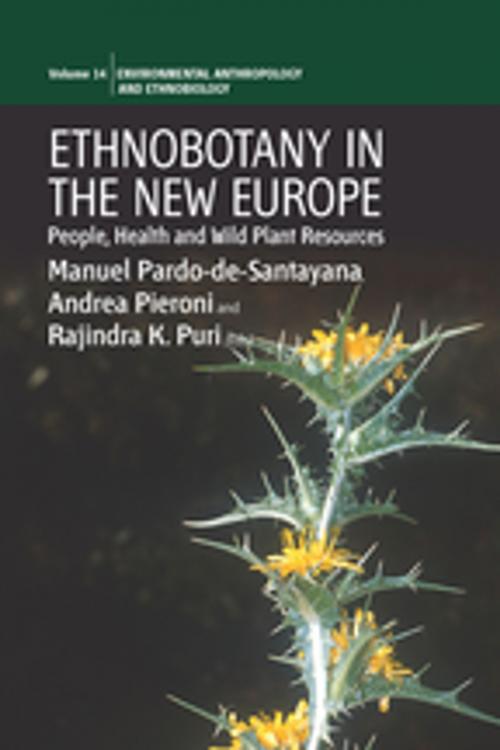Ethnobotany in the New Europe
People, Health and Wild Plant Resources
Nonfiction, Science & Nature, Science, Biological Sciences, Environmental Science, History, European General, Social & Cultural Studies, Social Science, Anthropology| Author: | ISBN: | 9781845458140 | |
| Publisher: | Berghahn Books | Publication: | June 1, 2010 |
| Imprint: | Berghahn Books | Language: | English |
| Author: | |
| ISBN: | 9781845458140 |
| Publisher: | Berghahn Books |
| Publication: | June 1, 2010 |
| Imprint: | Berghahn Books |
| Language: | English |
The study of European wild food plants and herbal medicines is an old discipline that has been invigorated by a new generation of researchers pursuing ethnobotanical studies in fresh contexts. Modern botanical and medical science itself was built on studies of Medieval Europeans’ use of food plants and medicinal herbs. In spite of monumental changes introduced in the Age of Discovery and Mercantile Capitalism, some communities, often of immigrants in foreign lands, continue to hold on to old recipes and traditions, while others have adopted and enculturated exotic plants and remedies into their diets and pharmacopoeia in new and creative ways. Now in the 21st century, in the age of the European Union and Globalization, European folk botany is once again dynamically responding to changing cultural, economic, and political contexts. The authors and studies presented in this book reflect work being conducted across Europe’s many regions. They tell the story of the on-going evolution of human-plant relations in one of the most bioculturally dynamic places on the planet, and explore new approaches that link the re-evaluation of plant-based cultural heritage with the conservation and use of biocultural diversity.
The study of European wild food plants and herbal medicines is an old discipline that has been invigorated by a new generation of researchers pursuing ethnobotanical studies in fresh contexts. Modern botanical and medical science itself was built on studies of Medieval Europeans’ use of food plants and medicinal herbs. In spite of monumental changes introduced in the Age of Discovery and Mercantile Capitalism, some communities, often of immigrants in foreign lands, continue to hold on to old recipes and traditions, while others have adopted and enculturated exotic plants and remedies into their diets and pharmacopoeia in new and creative ways. Now in the 21st century, in the age of the European Union and Globalization, European folk botany is once again dynamically responding to changing cultural, economic, and political contexts. The authors and studies presented in this book reflect work being conducted across Europe’s many regions. They tell the story of the on-going evolution of human-plant relations in one of the most bioculturally dynamic places on the planet, and explore new approaches that link the re-evaluation of plant-based cultural heritage with the conservation and use of biocultural diversity.















